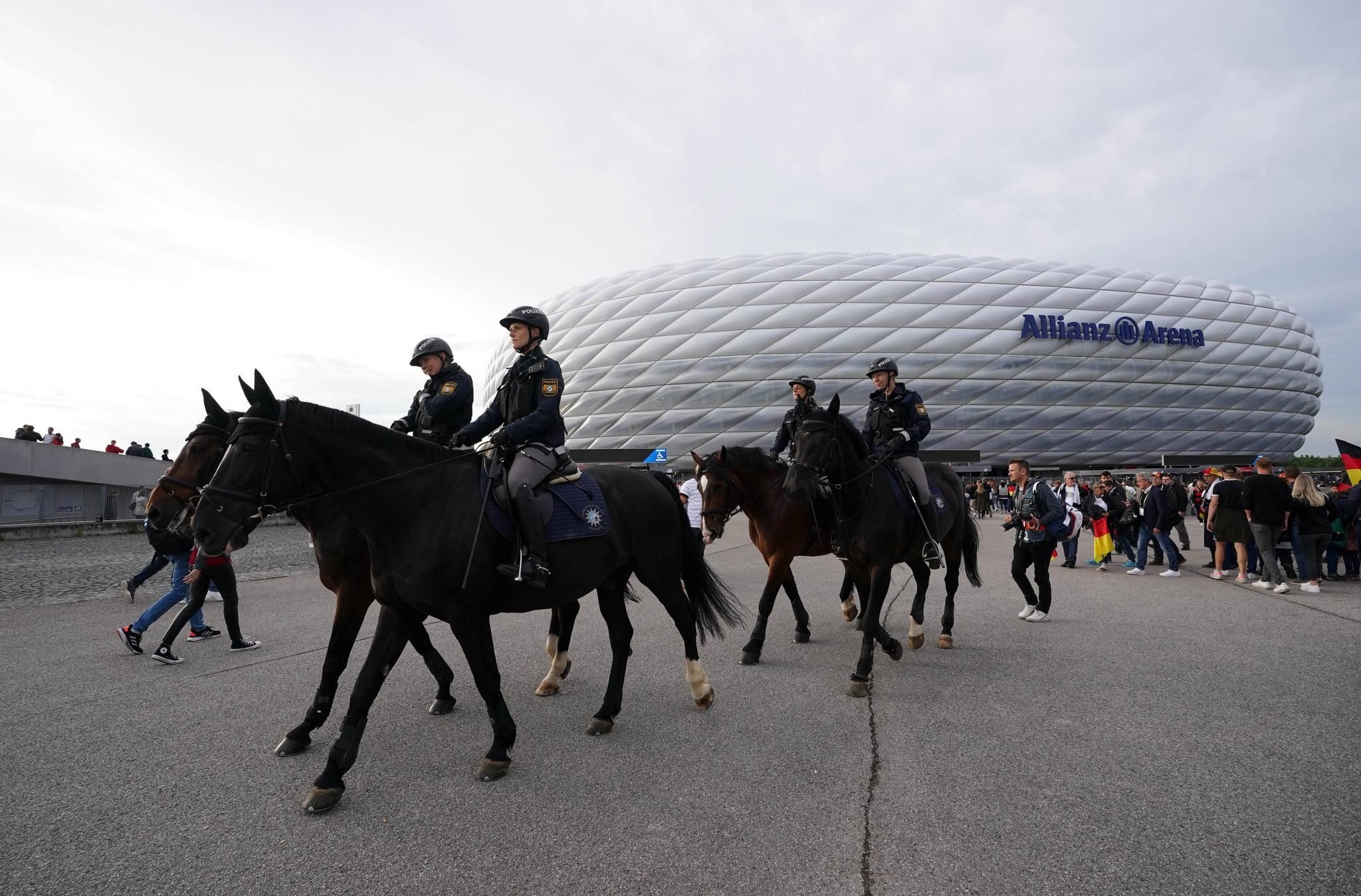It’s supposed to be a big football festival, a summer fairy tale 2.0, so to speak. But the terrorist attack in Moscow has made many people in Germany aware again that the threat from Islamists is real and that plans for attacks in this country probably only failed because the authorities had the suspects on their radar. An uneasy feeling has crept into the joy of the European Football Championship.
Recommended articles
What risk do stadium visitors or fans take when attending a public viewing together? Happy gatherings of people have often been the target of Islamist assassins. The Federal Ministry of the Interior is trying to reassure: for them, the issue of security is their top priority, says Nancy Faeser (SPD), who is also the Minister of Sports.
2.7 million stadium visitors are expected
It could be a tough summer for those who don’t like football. The competition will take place in Germany for four weeks until the new European champion is determined on July 14th. Seven federal states and ten cities are involved, including Stuttgart and Munich, where the European Championships begin on June 14th. 2.7 million stadium visitors are expected, and several million more will be on the fan miles. Football can be watched publicly not only in the host cities, which are the focus of the security authorities, but in tens of thousands of German municipalities.
Vacation ban for police officers
This is a huge challenge for the security authorities in the country. They not only have to keep an eye on potential assassins, but also violent football fans, the hooligans. In Stuttgart, for example, football fans from Hungary who have attracted attention in the past for their aggressive behavior are expected on June 19th. The authorities should also be able to respond to this with “appropriate forces,” as the Federal Ministry of the Interior reports. These forces include more than 50,000 federal police officers who are subject to a vacation ban during the European Championships. There are also the police forces in the federal states.
No reason to stay away from events
Baden-Württemberg is preparing for the European Championships with “large-scale exercises” in which complex scenarios and emergencies are trained. Interior Minister Thomas Strobl (CDU) left open on Tuesday in Stuttgart which specific projects are part of the security concept in the southwest. The risk situation in Germany and Baden-Württemberg remains high. “That’s why increased vigilance is required,” says Strobl. On the other hand, he sees no reason to stay away from events. This also applies with a view to the European Football Championship.
There is also a very high abstract risk situation in Bavaria
In Bavaria, too, there is a “very high abstract risk situation” from Islamist terrorism, but there is no information about concrete attack planning, said the Interior Minister in Munich. Minister Joachim Herrmann emphasized that the police and the Office for the Protection of the Constitution in the Free State are in “close and constant exchange” with the security authorities of the federal government and other federal states to assess the threat situation. The current developments in the security situation would “of course” be taken into account.
As the magazine “Der Spiegel” reported, private security service providers and foreign police officers will also be on duty during the European Football Championship. The police officers’ technology has been upgraded so that they can detect and intercept remote-controlled drones. Nancy Faeser announced in the “Rheinische Post” that there would be temporary controls at all German borders during the tournament “in order to be able to prevent possible violent criminals from entering the country.” An international police center will be set up in Neuss in North Rhine-Westphalia for the purpose of exchanging information between the federal government, federal states and other European countries.
Call for data retention
But Union politicians want even better instruments to avert danger. “The Federal Minister of the Interior has repeatedly spoken out in favor of data retention. “Unfortunately, the federal government remains inactive,” criticizes Strobl. It is “high time to give the security authorities what they need”.
The deputy Union parliamentary group leader Andrea Lindholz (CSU) also sees these deficits in the traffic light coalition. It must critically question itself “why it does not use all legal leeway to combat terrorism, but rather restricts it”. The assurances of the Interior Minister and the Justice Minister that they would do everything they could to combat terrorism turned out to be “simply inaccurate”. But the CSU politician also emphasizes this: “Anyone who now warns against attending football games will end up doing the Islamist business.” She has full trust in the police and the Office for the Protection of the Constitution at the federal and state levels.
